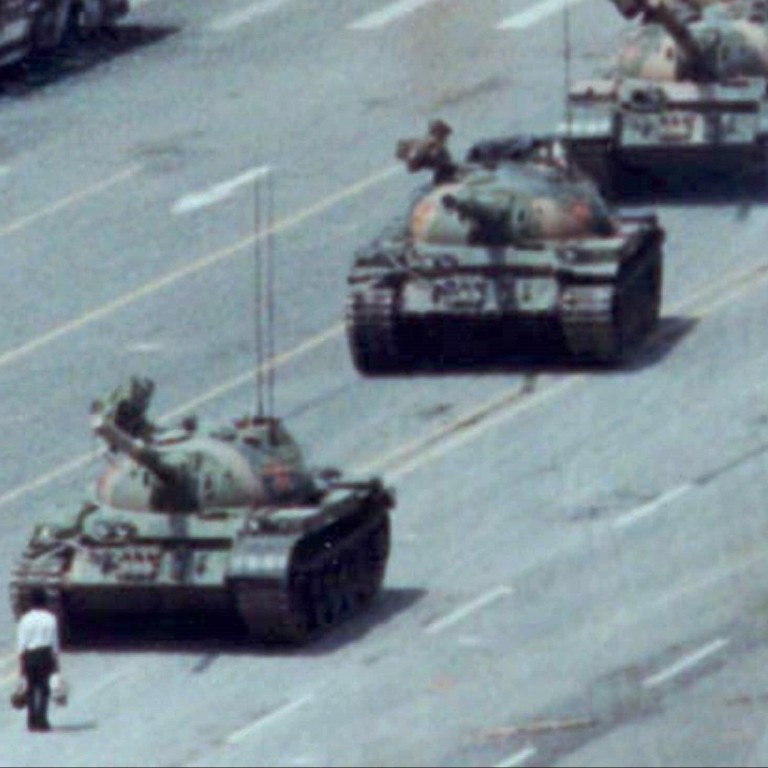
June 4 anniversary: Hong Kong teachers drop annual ritual of telling students about Beijing crackdown, fearing ‘red lines’
- Wan Chai teacher won’t hold special history class fearing complaints, national security law
- Education Bureau taking complaints more seriously, wants schools to probe anonymous ones as well
For 30 years, Hong Kong teacher Peter Lee gathered his students together every June 4 to tell them what happened that day in Beijing in 1989, showing them photographs, news clippings and video footage.
Officials accused of using Covid-19 as excuse to ban Hong Kong’s Tiananmen vigil
“Given the current social atmosphere, I think it’s too risky to repeat what I have been doing,” he said. “I think the school management will say no if I tell them that I intend on conducting that kind of special lesson.”
He is one of two Hong Kong teachers who have told the Post they will not mark this year’s anniversary of the Tiananmen Square crackdown by telling their students about it, because of concerns over the national security legislation.
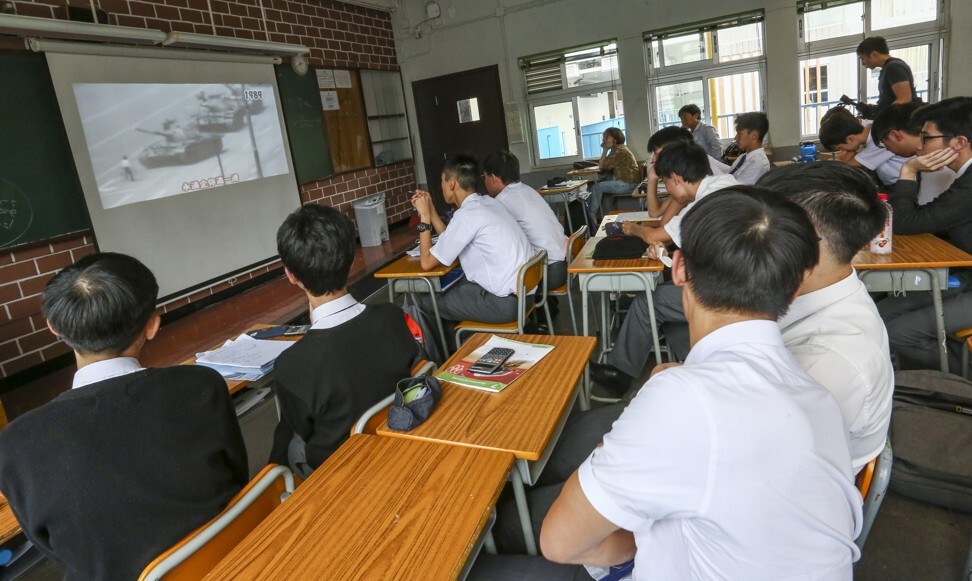
The wide-ranging law bans acts of secession, subversion, terrorism and collusion with foreign forces, but some educators have expressed worries about how it might affect them too.
Article 9 of the law says authorities will take “necessary measures to strengthen public communication, guidance, supervision and regulation over matters concerning national security, including those relating to schools, universities, social organisations, the media and the internet”.
The law also warns against provoking “hatred among Hong Kong residents” towards the local or central governments.
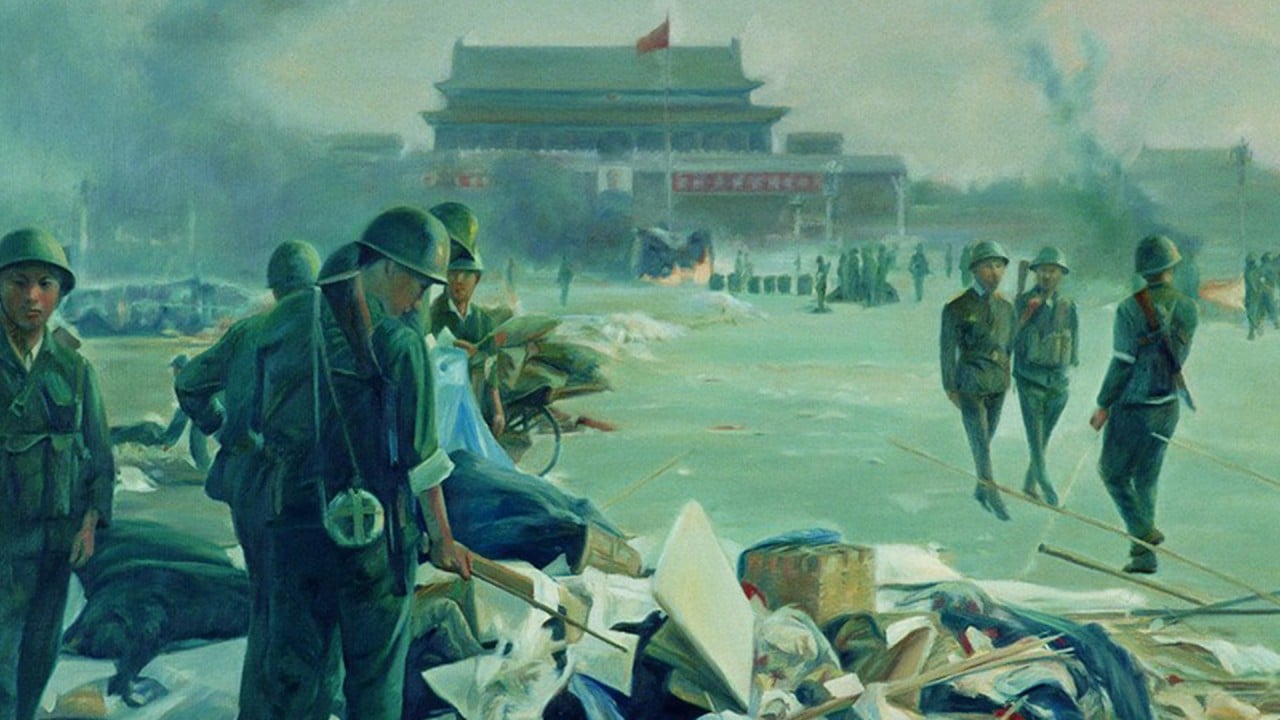
02:59
Former PLA soldier paints to remember Tiananmen Square crackdown
In guidelines issued on May 21, the Education Bureau urged schools to look into every complaint involving teacher misconduct, including anonymous ones.
For Lee, 54, who has taught maths at a secondary school in Wan Chai since September 1989, those are signals to avoid trouble.
“I feel sad that I have to abandon my annual practice of imparting my first-hand knowledge about that chapter of history to my students,” Lee said. “I am sorry and feel helpless about it.”
On June 4, 1989, the Chinese authorities sent tanks into Tiananmen Square to bring a bloody end to weeks of student-led protests against corruption and demanding greater democracy.
Organiser of Hong Kong’s June 4 vigil opens museum to those wishing to mark date
Lee was in the capital that day. He was in university at the time and had joined a group of Hong Kong students who went to the capital for two weeks to support the protesters.
He recalled that at around 8pm on June 3, he heard the sound of gunshots from Changan Avenue, near Tiananmen Square.
“Sometime after 10pm, I saw a man whose hand had been shot,” he said.
In the early hours of June 4, he saw People’s Liberation Army soldiers storming the square. Hundreds of protesters died, perhaps more than 1,000, according to some estimates.
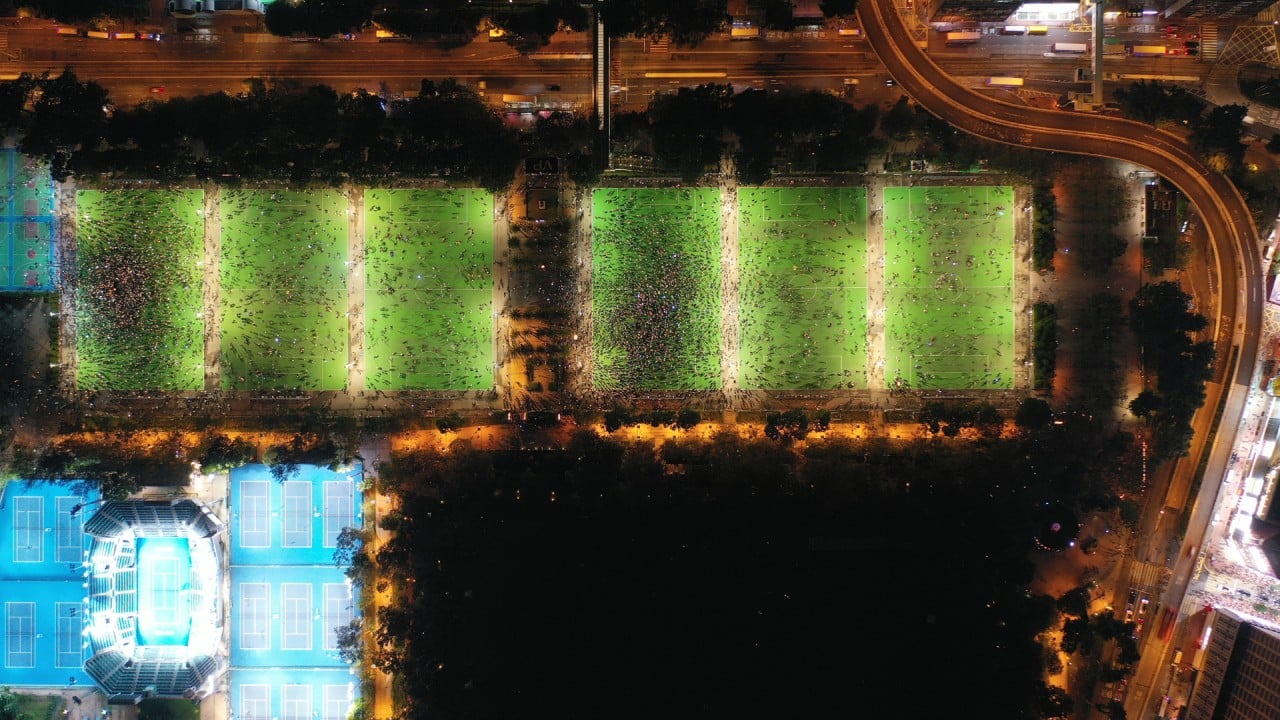
06:13
Thousands of Hongkongers defy ban and gather to mark Tiananmen anniversary
Lee returned to Hong Kong the next day, and became a teacher later that year.
Explaining why he began his annual ritual of marking June 4 with a history lesson for his teenage students, he said: “I felt duty-bound to let my students know about the tragedy and help keep the memory alive.”
His school management was aware and allowed him to proceed, although it asked to be unnamed in reports about Lee.
A primary school teacher surnamed Wong shared Lee’s anxiety. Born in 1989, Wong became a teacher seven years ago and used to tell his pupils every June about the crackdown during general studies, one of the subjects he teaches.
What the Tiananmen Square crackdown on June 4, 1989 was about
“If the national security law was not in place, I would continue doing so this year, but I won’t, because I don’t know where the red lines lie,” he said.
“The Education Bureau may say it should be left to teachers’ professional judgment, but it’s very difficult for teachers to make such a judgment.”
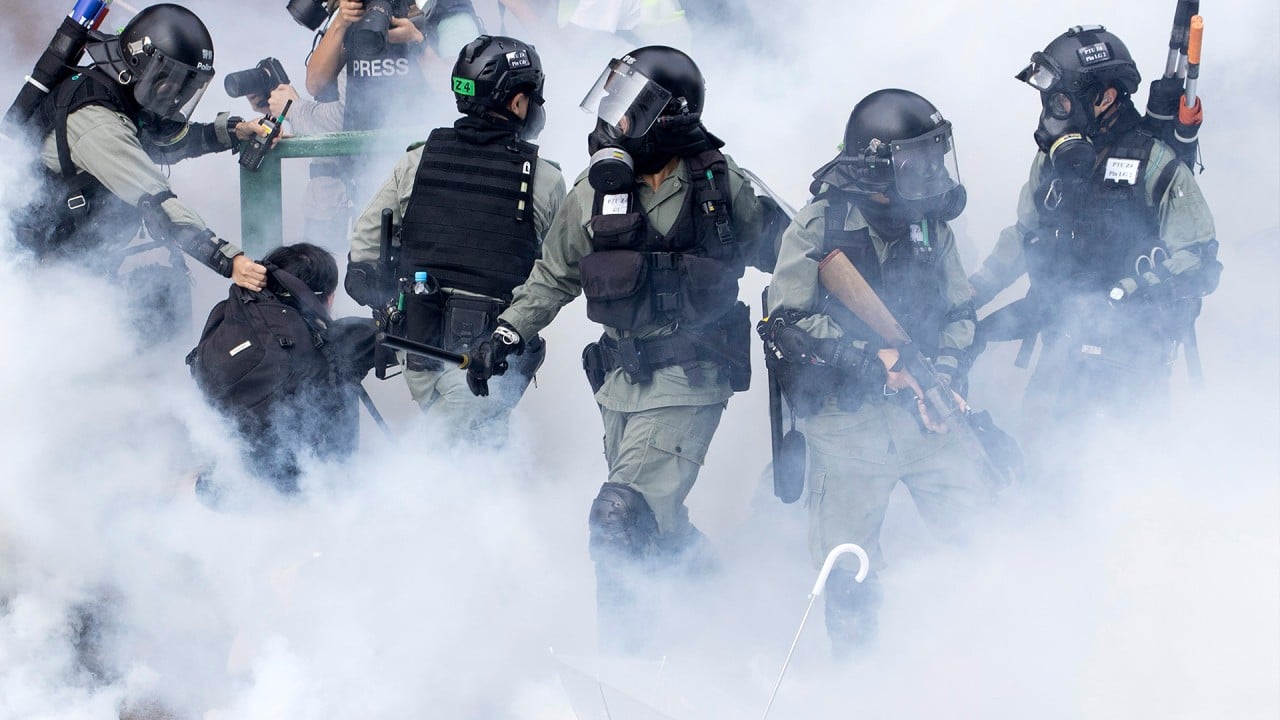
07:30
China’s Rebel City: The Hong Kong Protests
In the past, schools had more leeway in handling complaints and could reject anonymous ones, or use them for internal reference only. Now they also have to investigate those complaints.
Officials accused of using Covid-19 as excuse to ban Hong Kong’s Tiananmen vigil
So far, 154 teachers have been disciplined, including three who were stripped of their lifelong registration because teaching materials they used were deemed problematic by officials.
In response to the Post’s inquiries on whether teachers were allowed to teach pupils about the crackdown, a bureau spokesman said it as the responsibility of schools to implement national security education under the national security law.
Teachers should develop and select appropriate learning and teaching resource materials that were unbiased and impartial, the spokesman said.
He added: “As professional educators, teachers should always be objective and impartial, and should not allow political standpoints of any individuals or specific bodies to affect their teaching, or even mislead students and instil in them negative values.”

